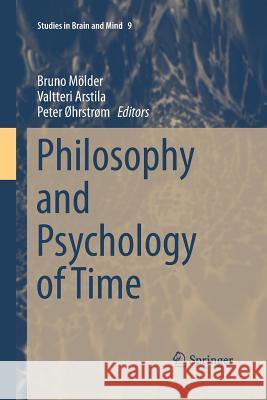Philosophy and Psychology of Time » książka
topmenu
Philosophy and Psychology of Time
ISBN-13: 9783319371931 / Angielski / Miękka / 2016 / 271 str.
Kategorie BISAC:
Wydawca:
Springer
Seria wydawnicza:
Język:
Angielski
ISBN-13:
9783319371931
Rok wydania:
2016
Wydanie:
Softcover Repri
Ilość stron:
271
Waga:
0.39 kg
Wymiary:
23.39 x 15.6 x 1.5
Oprawa:
Miękka
Wolumenów:
01
Dodatkowe informacje:
Wydanie ilustrowane











